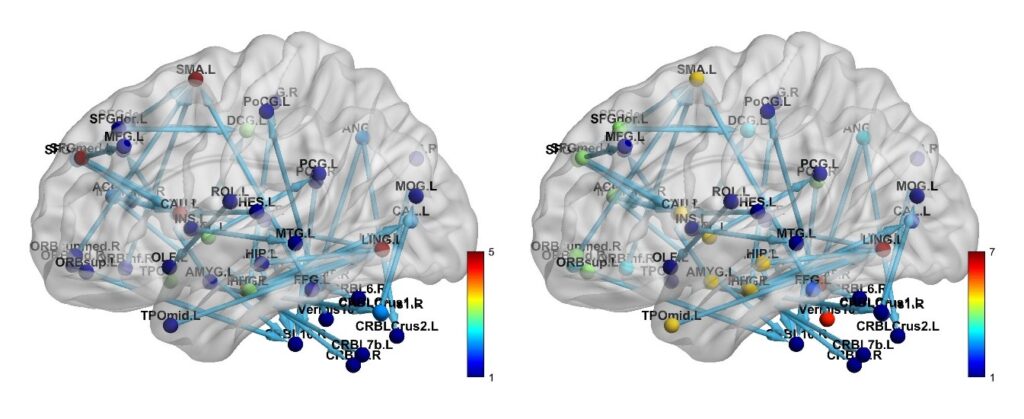How it works :
There is evidence that functional adaptive changes arise at the early stages of the disease as a way of limiting the clinical manifestations of tissue damage. Owing to the scattered existence of the structural abnormalities, the association between lesions and clinical disabilities is not straightforward. So, these behavioral abnormalities are not always perceptible with conventional clinical examination. Additionally, MRI scans are administered for this purpose, yet there is a generally week correlation between the early symptoms of cognitive impairment and the conventional MRI measures of structural damage. Furthermore, these cognitive assessments do not seem to identify emerging cognitive deficits early enough to be effectively intervened.
Functional magnetic resonance imaging (fMRI) is a non-invasive tool that can indirectly capture the underlying and hidden lesions through early detection of degeneration and alteration of brain connectivity. However, current studies have evaluated the result of the resting-state fMRI. Based on researches, certain connectivity characteristics during a task execution may not be apparent in the resting state; thus, the resting-state fMRI does not prove to be as effective as task-based fMRI during which the patient is required to perform a specific task.

Our proposed software
is designed based on intelligent algorithms of machine-learning by analyzing data acquired from cognitive task-based fMRI at the very early stages of MS. Via machine-learning, the system learns from data, recognizes the changes in brain connectivity patterns induced by cognitive task performance, and identifies the most relevant features of changes as markers for the classification of individual patients. The analysis of directed connectivity and network measures on cognitive task-based fMRI data in MS is new and unrivaled, and the classification performance using the proposed method is prominent. The suggested software would allow physicians and psychiatrists/psychologists to initiate treatment plans sooner for better management of the disease. Considering the disabling impacts of cognitive impairment on a patient’s life, early diagnosis and treatment of these symptoms are of utmost importance.
Our technology works in tandem with current MRI scanners. Your clinic would need these resources and equipment in order for our technology to deliver its best results:
- A 3.0 Tesla MRI scanner
- Ear Plug
- Communication Console
- Subject head restraints
- An 8-channel and a 32-channel coil
- External PC for stimulus presentation
- Response Grips
- Audio System like a headphone
- MRI Goggles
- Sync Box




Identification of the cognitive impairments in the early stages of multiple sclerosis (MS) disease
A software based on the machine–learning system through analyzing cognitive task–related functional magnetic resonance imaging (fMRI) data
Assistant the practitioners and psychiatrists / psychologists to early diagnose the cognitive dysfunction and plan for therapeutic strategies sooner to prevent severe cognitive decline
